Details on Connecting Components in the Ventilation Discipline
Information on the Connect Components section in the Ventilation discipline.
You are here:
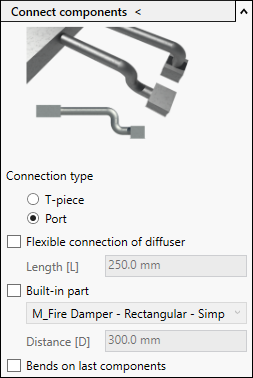
Connect components <
Automatically connects components to the selected air ducts.
Connection type
The connection to the main duct can be designed using a T-piece or a port.
| T-piece | Port |
|---|---|
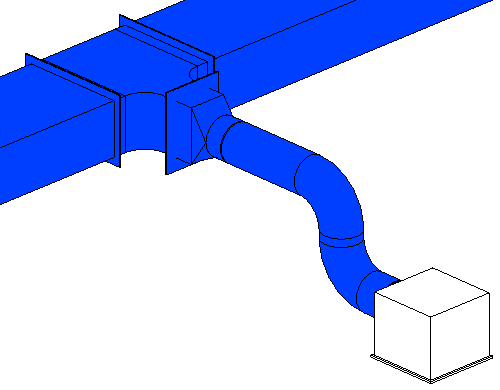 The connection to the main duct is realized using a T-piece. | 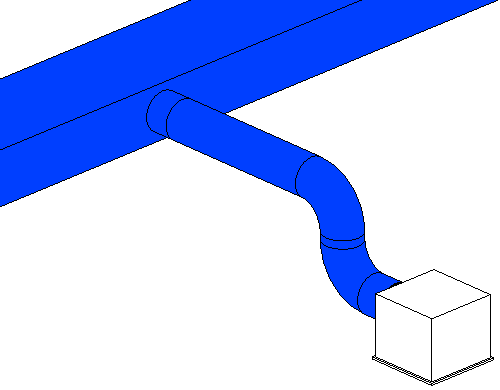 The connection to the main duct is realized using a Port. |
Flexible connection of diffuser
| Activated | Deactivated |
|---|---|
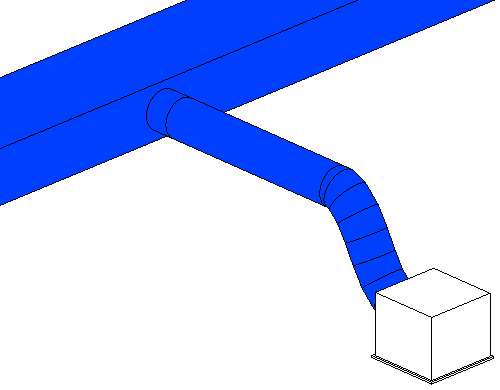 The first part of the connection (coming from the air diffuser) is a flexible duct. Additionally determine the Length [L]. If you prefer rigid ducts, enter 0 mm in this field. If you enter a length that is greater than the distance to the duct, the entire connection is constructed as a flexible duct. In this case, no built-in part can be inserted. |  The entire connection is carried out with rigid ducts. |
Length [L]
Determine the length of the flexible duct for the connection as shown below:
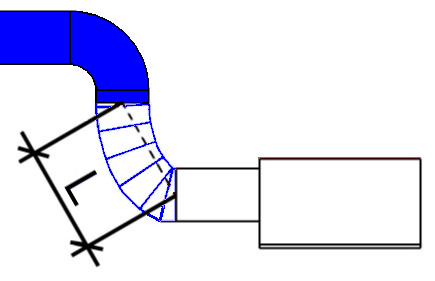
Built-in part, Distance [D]
Here, built-in parts such as coolers, filters and flow rate closed-loop controllers are available for selection. The built-in part is inserted into the rigid connecting pipe when connecting. The Distance [D] to the main duct is used. If other suitable families are included in the project, they will also be listed here. You can find further built-in parts in the library tab.
Built-in parts can not be inserted into flexible ducts. If you activate the check box Flexible connection of diffuser at the same time, make sure that the rigid part of the duct is sufficient to insert a built-in part.
Bends on last components
| Activated | Deactivated |
|---|---|
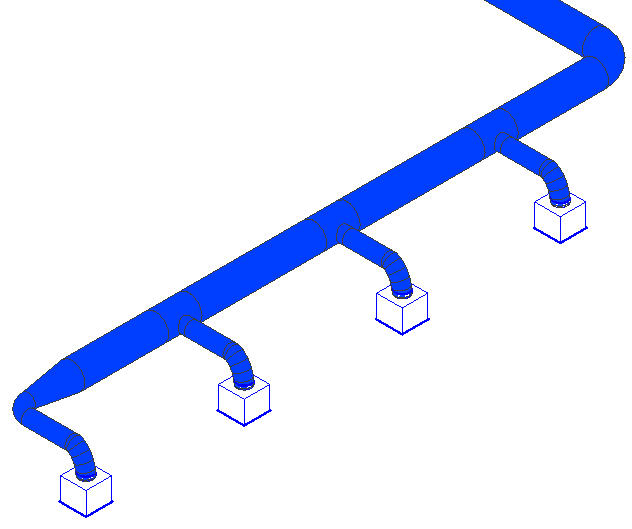 The last components of a duct run are connected using bends, thereby creating a closed duct system. | 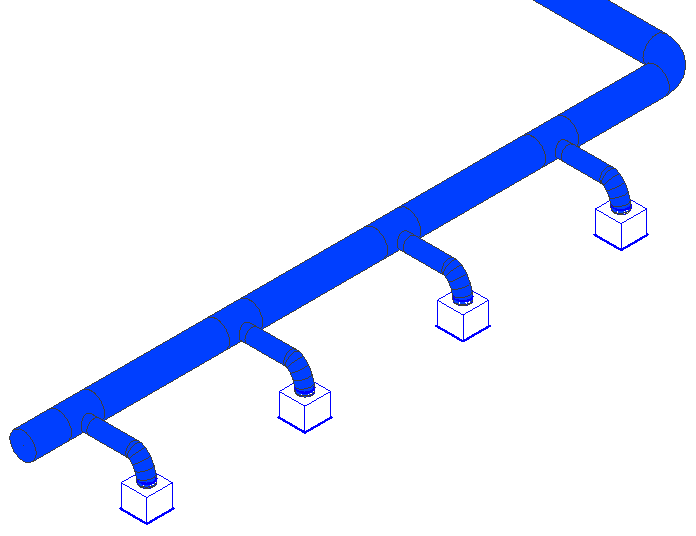 The last components are connected with T-pieces. The duct remains open at the end. This can be useful if further construction is required at this point. |